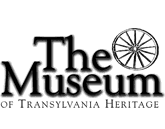In the United States | 1912-1961
1912
- New Mexico and Arizona joined the Union
1913
- 16th Amendment of the Constitution provides for a Federal Income Tax
- Henry Ford employed the assembly line (adapting the model of the meat packing industry)
1914
- Fair Trade Commission established
1915
- Marines intervened in Haiti, giving US control of the island
1916
- Pisgah National Forest established, proclamation signed by President Woodrow Wilson
1917
- April 6 the United States declared war on Germany
- First Selective Service Act covering men aged 18 – 45
1920
- January 16, 18th Amendment adopted prohibiting the manufacture or sale of intoxicating liquors (Prohibition)
1921
- Charlie Chaplin made his first full-length movie The Kid
- State of North Carolina assumes responsibility for a portion of its roads
1923
- George Gershwin wrote his popular Rhapsody in Blue
1925
- John Scopes prosecuted in Tennessee for teaching Darwin’s theories
1927
- Charles Lindbergh flew across the Atlantic ocean in his monoplane The Spirit of St Louis
1928
- American anthropologist Margaret Mead published best-seller Coming of Age in Samoa
1929
- Jacob Schick invented the “injector” razor, but concentrated work on the electric dry razor
1930
- “Harry” Hans Straus established the Champagne Paper Corporation in New York
1931
- Al Capone, crime syndicate boss, jailed for tax evasion
1932
- Carl Magee, responding to Oklahoma City Chamber of Commerce, invented parking meter
1933
- December 21: Prohibition repealed
1935
- Beginning construction of the Blue Ridge Parkway
1936
- Carl Sandburg awarded the Pulitzer Prize for poetry
1938
- US virologist Wendell Stanley opened up the genetic study of viruses
1939
- John Steinbeck published Grapes of Wrath
- Russian immigrant Igor Sikorsky designed and flew the first helicopter
- The U-235 isotope of uranium was split at Columbia University
1940
- President Franklin Delano Roosevelt elected to an unprecedented third term
1941
- Scientists started working on the Manhattan Project to develop the atomic bomb
- December 7: Pearl Harbor: loss of 19 ships, 140 aircraft, and 2,300 lives
- December 8: The US declared war on Japan
- December 11: US declared war on Germany and Italy
- President Roosevelt dedicated the Smoky Mountain Park
1942
- US naval forces prevent Japan’s free advance
- University of Chicago scientists, led by Enrico Fermi, achieved first nuclear chain reaction
1944
- G.I. Bill provided for education and other benefits for veterans
1945
- Percy L. Spencer invented the microwave oven
1949
- Medical researchers at Ohio State University first used cobalt-60 to treat cancer patients
1951
- U.S. Troops in Korea stopped communist north at the 38 parallel
- First Television broadcast from San Francisco to New York
1954
- Merger of Olin Industries and Mathieson Chemical Corporation
- American virologist, Jonas Edward Salk, developed polio vaccine
- In Brown vs Board of Education (Topeka, Kansas), U. S. Supreme Court found school segregation illegal
1956
- First video recording
- Elvis Presley made “Rock ‘n Roll” a household phrase
1958
- National Aeronautic Space Administration (NASA) established
1960
- John F. Kennedy elected President of the U. S.
Sources - Inter Alia::
(1.) Beazley, Mitchell (ed.): Time Lines: World History Year by Year since 1492. New York Crescent Books, 1991
(2.) Grun, Bernard: The Timetables of History. New York, Simon Schuster/ Touchstone, 199
By Brian du Toit - Transylvania Sesquicentennial Steering Committee







